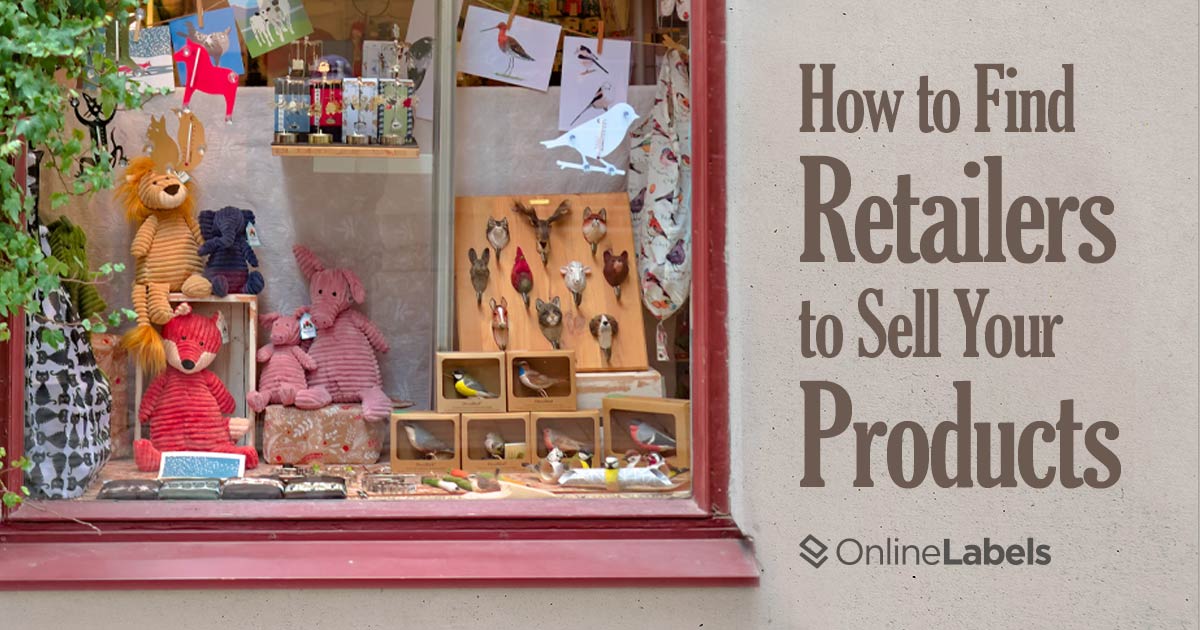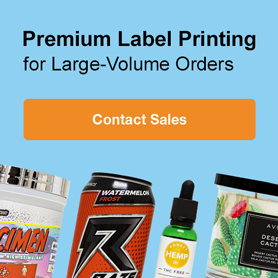How to Find Retailers to Sell Your Products: A Guide for Small Business Owners

For small business owners navigating the world of e-commerce, finding retail partners to carry products is a crucial step toward success. However, identifying reliable retailers for wholesale purchases can be daunting. That's why we reached out to other businesses to learn how they approach finding stores to stock their goods.
Prioritize Product Quality to Attract Retailers
The first step should be evaluating your product to determine what value it would bring to a retailer's shelves. What specific niche does your product fill? Are you targeting a unique audience? Do you solve a specific problem your customers face? Having solid answers to these questions can help your pitch to retailers. Allow your business to cut through the noise by identifying how you stand out from what they've seen in the past.
Leverage Online Marketplaces
In the dynamic landscape of retail, online wholesale marketplaces like Faire have emerged as game-changers for small business owners seeking to scale their operations and reach a broader audience. These platforms offer a gateway for artisans, creators, and entrepreneurs to showcase their products and connect with retailers worldwide. Each platform is easy to use and once you're signed up and accepted, can open doors for your product's reach. Here are a few ways to maximize your presence on these platforms:
Impress with your profile. Spend some time creating a captivating profile. Tell the story of your brand and provide high-quality imagery of yourself and your goods.
Consider curating your offering. Before you add all of your products to your profile, think about providing a select few of your best sellers that also showcase a range of work. Ensure your product line represents a cohesive brand story while offering variety to entice retailers looking to cater to various customer tastes.
Start Your Search Locally
Many professionals, like Niall John Lynchehaun, Managing Director of Midland Stone, always recommend starting your search locally.
"When it comes to finding retailers, I’d highly recommend seeking local markets where artisans converge. Attend, connect, and forge partnerships. Many retailers value unique, locally sourced products, and yours might have a story to tell. Attending industry events is just as important - you’ll find a lot of retailers there, which will allow you to build relationships, share your passions, and let the authenticity of your craft resonate."
Wholesale online marketplaces, like Faire, usually also allow you to share your storefront beyond the marketplace. This gives you the ability to directly send your wholesale shop link to your favorite local shops.
If you're looking to start locally before getting into a dedicated wholesale marketplace, Steve Pogson of First Pier, recommends looking into options your current ecommerce platform may provide. "If you're using an ecommerce platform like Shopify, you can create a separate, password-protected storefront for wholesale customers. This allows you to offer custom pricing and enables you to personalize your retailers' shopping experience. For instance, a feature like this is exclusively available on the Shopify Plus plan."
Leverage Social Media and Online Communities
Social media platforms and online communities can be powerful tools for discovering wholesale opportunities. Join industry-specific groups on platforms like Facebook, LinkedIn, or Reddit, where wholesalers often engage with retailers. Participate in discussions, ask for recommendations, and seek advice from fellow small business owners who have experience in selling their goods wholesale.
Social media can also be used to directly reach out to the shops that you love. You may find that your product would fit the mission of a particular shop you discovered on Instagram. It may only take a direct message to start a conversation! Here's a quick template you can customize when messaging stores on social media or email:
Hi [Store Manager/Owner's Name],
Hope you're doing well! I wanted to reach out because I think our [Your Product Line] would be a fantastic fit for your store.
At [Your Business Name], we're all about [brief description of your products - what makes them unique, cool, or high-quality]. We’ve got some awesome [Your Product Category] that I think your customers would love.
I'd love to chat more about how we can tailor our products to fit your store perfectly. I’m happy to send over some samples so you can see the quality firsthand.
Would you be up for a chat sometime this week?
Thank you,
[Your Name]
[Your Contact Information]
[Your Business Name]
[Business Website/Link to Catalog]
Attend Trade Shows and Exhibitions
Trade shows and exhibitions are invaluable for networking with retailers. These events bring together manufacturers, distributors, and small business owners, providing an opportunity to establish connections and negotiate deals face-to-face.
Edward Reay, Owner of Build Fanatic offers this advice, "Engaging with potential retailers through participation in industry events, trade exhibitions, and networking gatherings is a productive strategy. Face-to-face encounters strengthen bonds and promote trust. Meeting in person gives you the opportunity to explain the value proposition of your product and establish a personal rapport. This will help you persuade shops to carry your merchandise since they will see firsthand your excitement and the superiority of your products."
Research industry-specific trade shows and make it a point to attend, armed with business cards and a clear idea of your ideal retail partner.
How to Price Your Products for Wholesale
This ultimately is up to you. Research what similar products are selling for in wholesale marketplaces if possible. A general rule is to price your products 50% cheaper than your retail price for wholesale. Of course, the most important thing to remember is your bottom line. At what MoQ (minimum order quantity) are you profitable at your wholesale price? Combining a competitive wholesale price with a MoQ that makes sense for your needs is key to driving a successful wholesale strategy.
Above all, Ilia Mundun, Founder & CEO of HeftyBerry, recommends complete transparency when it comes to pricing and payment. "Clearly outline payment terms in your agreements, such as payment due upon order placement or net payment terms (e.g., net 30). Offering flexible payment options can attract more retailers."
Looking to upgrade your labels before pitching your products to retailers? Browse our full range of custom labels and stickers and see why business owners everywhere trust our labels to be the first impression of their brand.


